You might be reading this because something inside you has started to come undone. Maybe you’ve spent years holding it all together, smiling when you didn’t mean it, and pushing through life when you were exhausted. Or maybe everything fell apart quickly: one hard week, one mistake, one moment when you realised you couldn’t keep going like this.
At some point, change stops being an idea and becomes a necessity. That’s usually when people start looking for outside help.
Private rehab programmes in Spain, like Camino Recovery, offer that kind of break. A place where the air feels different, where you can finally stop pretending to be fine and start figuring out what healing really looks like.
Here, among the hills and sea, recovery means finding your way back to yourself.
So what does that actually look like day to day?
Here’s what to expect: both the practical side of treatment and the deeper emotional work that happens along the way.
A landscape as part of the treatment


Private rehab in Spain offers something you can feel before a single therapy session begins: space. The kind of space that lets you breathe.
Many centres are tucked into the Andalusian countryside or along the Mediterranean coast: quiet, sun-drenched places where the pace of life slows just enough to let your nervous system exhale. The landscape itself becomes part of the treatment.
You might wake to the sound of birds or the first glint of light over the hills. Breakfasts tend to be simple but nourishing, fresh fruit, whole grains, eggs, coffee or tea. Even this small ritual helps ground you.
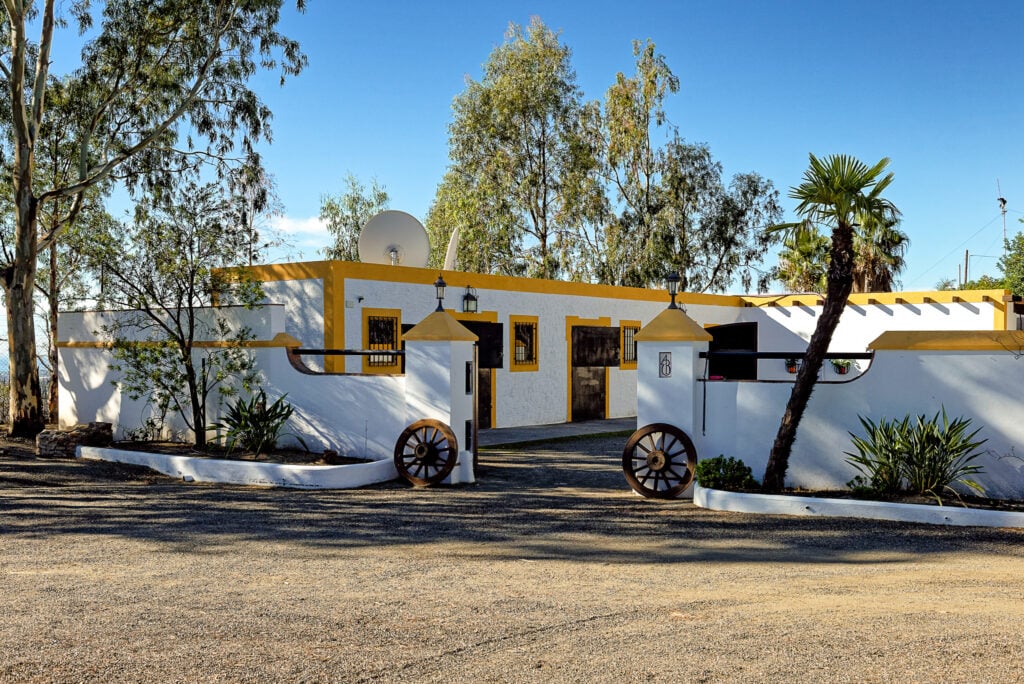
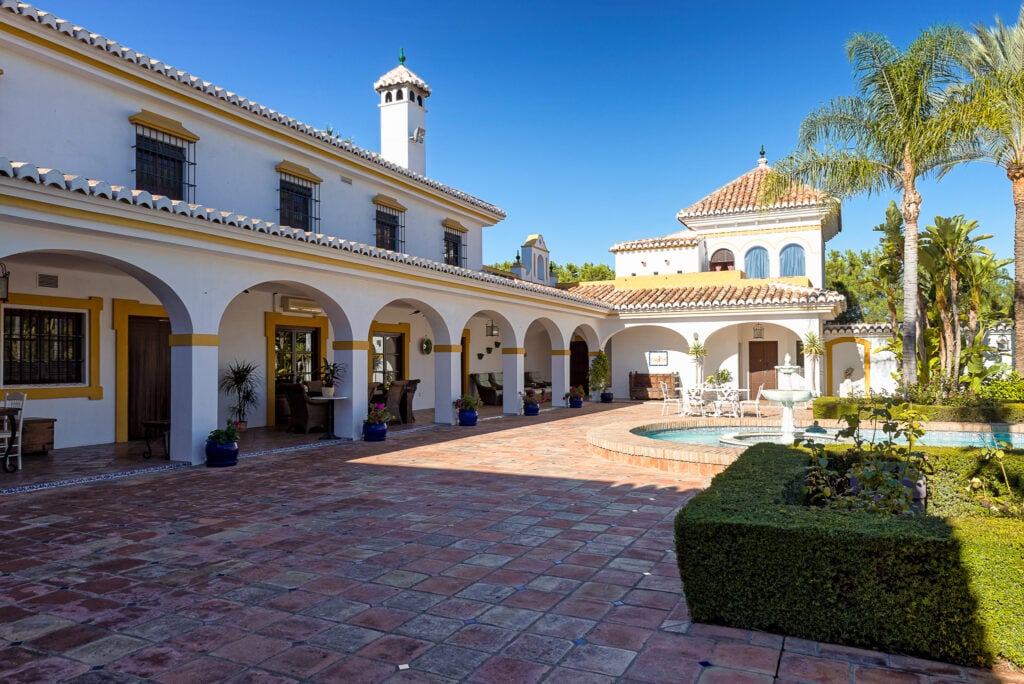
At Camino Recovery, for instance, days unfold within a serene villa setting, surrounded by gardens and mountain views. It’s about creating safety and comfort, so you can do the harder inner work without constant distraction or stress.
Private rehabs often blend modern amenities with warmth: private or shared rooms, outdoor pools, walking paths, fitness and yoga spaces. Everything here exists to make recovery feel human: real, not clinical.
The first step: assessment and arrival
The first few days are all about settling in. You will find your bearings and meet your team. You’ll meet with therapists and medical staff who listen first, then help shape a plan built around you. Every person arrives with a different story, so every treatment plan looks a little different.
If detox is needed, it’s handled with medical support. This stage isn’t separate from treatment; it’s the first step in beginning to feel steady again. You’ll be encouraged to rest, eat, drink water, and let your body start to recover while the staff keeps a close eye on your progress.
You’ll also meet others who’ve just arrived, each with their own version of the same story. There’s often an unspoken understanding in those first few days. Everyone remembers what it felt like to show up unsure but ready, carrying equal parts fear and hope.
Structure but with breathing room
One of the biggest differences between public and private treatment is the balance between structure and space. A private rehab gives you both: enough routine to feel grounded, enough breathing room for yourself.


Days usually begin with something simple, maybe meditation or a quiet walk. Morning sessions may include group therapy, where individuals share their experiences and begin to make sense of what has been driving them. Later, you might meet one-on-one with your therapist to dig deeper into patterns and triggers.
Afternoons are often reserved for experiential therapies, such as art, equine work, exercise, or mindfulness exercises. Evenings are slower, giving time for reflection, journaling, or connecting with peers.


Each centre has its own schedule, but the intention is the same: to rebuild a sense of rhythm. Private rehab doesn’t rush you through healing; it allows you to take steady, honest steps toward it.
At Camino Recovery, for example, therapy is both evidence-based and experiential. You might learn how trauma shaped your thinking, then step into a horse arena and discover what trust feels like in your body. The combination of insight and lived experience helps you move from just understanding change to actually feeling it.
Trauma-informed, whole-person care
Addiction is rarely a standalone issue. It’s often tangled with trauma, grief, anxiety, or unresolved stress. That’s why private rehab programmes in Spain, including Camino Recovery, focus on treating the whole person, not just the symptoms.
The therapists here work from a trauma-informed perspective, which means they understand that pain often has roots in earlier experiences: grief, loss, neglect, pressure, fear. These stories don’t excuse what’s happened, but they help explain it. And once something is understood, it can start to heal.
You might do deeper work through EMDR, which helps the brain safely process trauma. There’s often family therapy too, because addiction rarely affects just one person. When families are willing to participate, the healing can ripple outward.
This approach is about connection, between your mind, body, history, and future. It’s about learning to live in your own skin again without needing to escape it.
Because private rehab keeps groups small, you’re never just another face in a circle. Therapists know your story, your progress, your setbacks. They see you. And being seen that clearly, without judgment, is where real change begins.
Food, rest, and movement as medicine
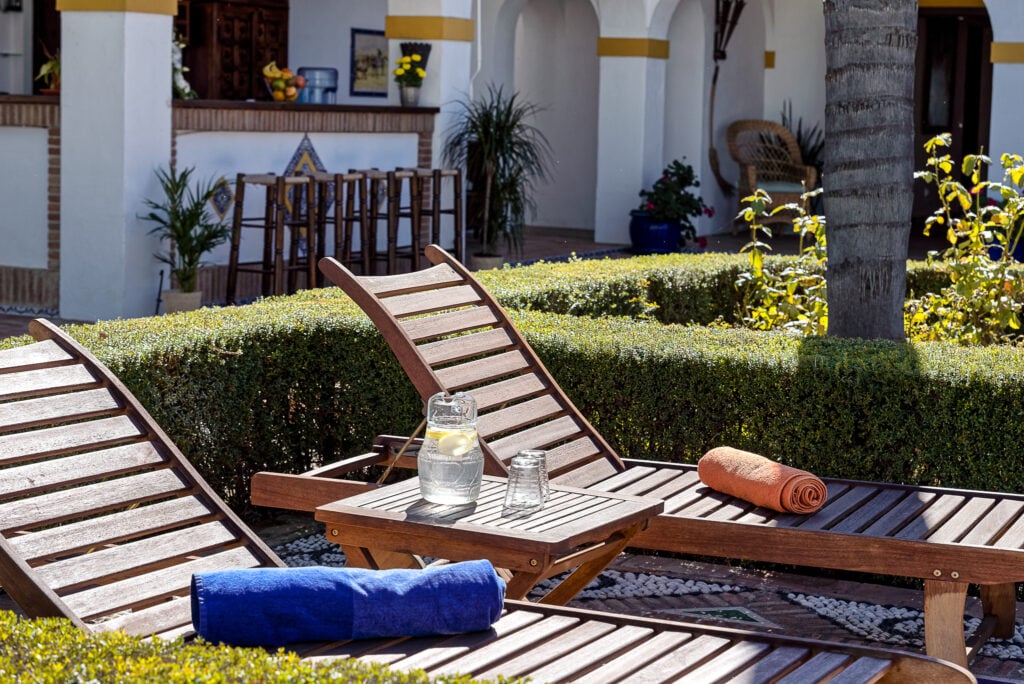
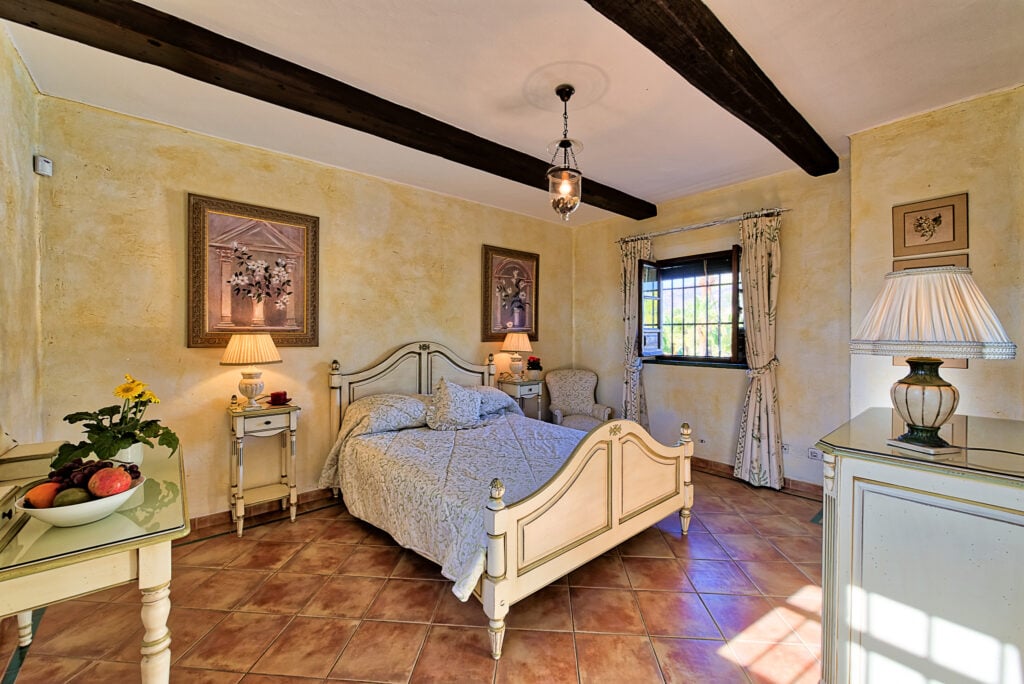


Recovery happens at the breakfast table, on the yoga mat, and in the small, ordinary choices that start to rebuild your strength.
Private rehabs in Spain tend to take this seriously. Meals are fresh, colourful, and nourishing—think grilled fish, roasted vegetables, ripe fruit, olive oil, and whole grains. There’s something healing about eating slowly again, about learning to feed yourself with care.
Movement is another form of medicine. Some days that means yoga or a gentle hike in the hills; other days it might be swimming, mindfulness walks, or strength work. You start noticing how the body carries emotion, and how it releases it too.
And then there’s rest, the kind you may not have felt in years. Early nights. Deep sleep. Quiet afternoons when you’re allowed to just be still. For many people, that stillness feels unfamiliar at first, almost uncomfortable. But over time, rest becomes part of healing.
Community and connection
Healing is personal, but it isn’t meant to be done alone. One of the greatest surprises for many people in private rehab is how quickly connection starts to form.
Group therapy is usually at the heart of each day. It’s where stories overlap and walls begin to lower. You start hearing parts of yourself in other people’s words, and there’s comfort in that. You realise you’re not the only one who’s tried to manage pain by numbing it, or who’s been afraid to let anyone close.
Because private programmes keep their groups small, there’s room for real honesty. You get to know each person, and something genuine builds, a kind of trust.
Outside of therapy, connection continues in quieter ways: group meals, art workshops, yoga sessions, or short outings. Many people describe this as the first place they’ve felt truly seen in years. And that sense of belonging becomes one of the strongest foundations for long-term recovery.
The real shape of recovery
Most people arrive at rehab expecting a straight path: you come in broken, you leave fixed. But recovery doesn’t work that way
In the beginning, there’s usually relief. You’re safe. You’re sleeping again. The noise inside your head quiets just enough for you to hear yourself think. But that stillness can stir up everything you’ve been avoiding. Grief. Shame. Anger. Loneliness. It all comes to the surface.
That middle stretch can be tough. It’s the part where you start feeling what you used to numb. You may question whether you’re getting better or just more aware of the pain. But this is progress: it’s your nervous system thawing, your heart learning to stay open even when it hurts.
And then, slowly, light starts to leak back in. You laugh again. You notice the taste of food, the way sunlight hits the trees in the courtyard, the sound of someone else’s kindness. You begin to trust yourself.
No one leaves rehab “done.” What you carry out is a set of tools, a little more peace, and the sense that healing is possible. The rest unfolds in the life waiting for you outside.
Continuing care and the return home
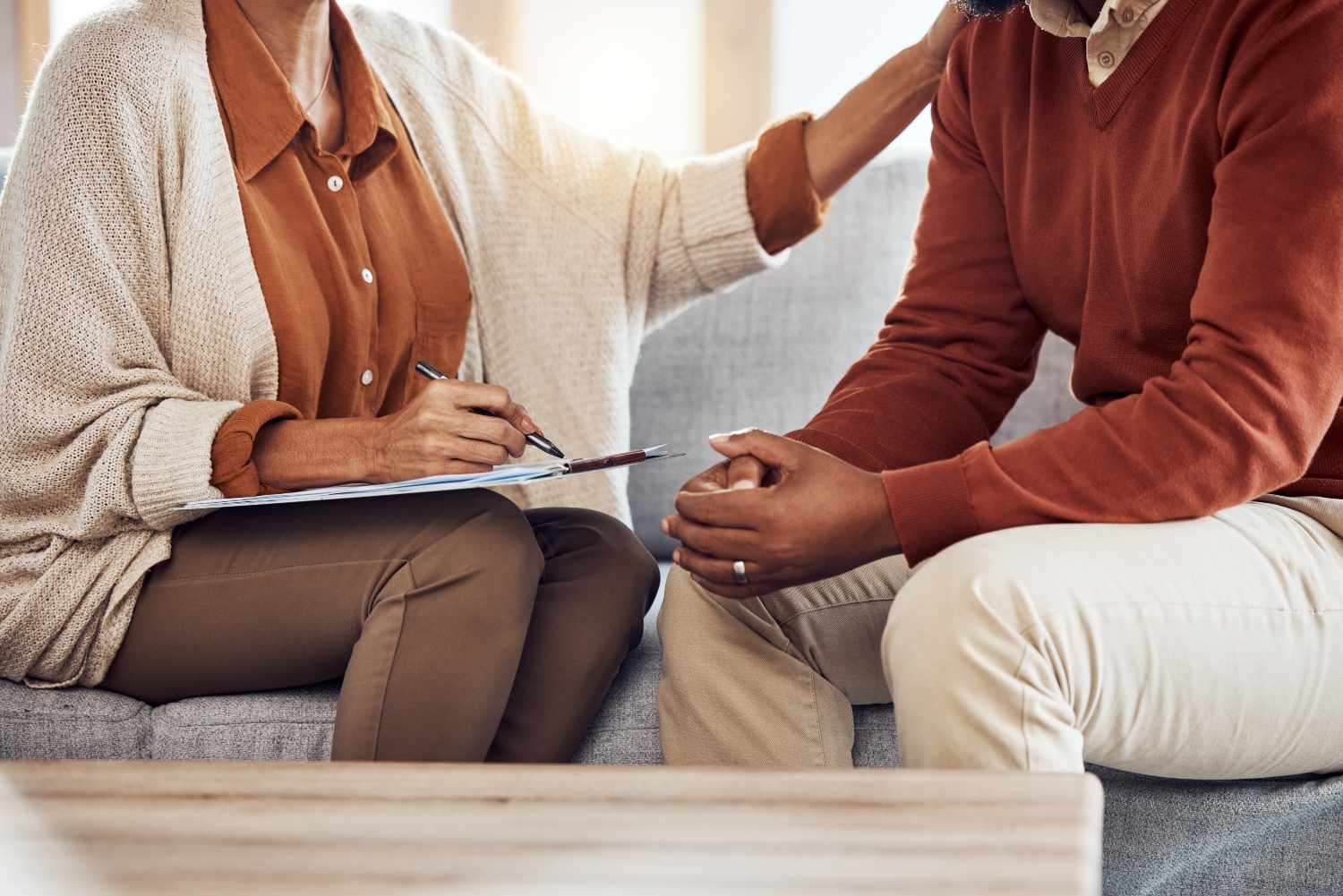
Leaving rehab can feel a little like standing on the edge of something new. It’s time to go back to the life you left behind. That can be exciting and terrifying.
Good private programmes don’t send you out the door with a handshake and a goodbye. Before you leave, your team will work with you to create a plan for what comes next. This usually includes follow-up therapy sessions (in person or online), local support groups, and a structured plan for your first few weeks at home. The goal is to help you stay connected and supported while you learn to live differently.
You’ll talk through the practical side of things, like how to manage triggers, what to do if cravings return, how to rebuild relationships, and how to fill the hours that used to be consumed by survival. You’ll also create a list of people and resources to reach out to when things get shaky, because they will sometimes get shaky. That’s normal.
Some programmes, like Camino Recovery, stay in touch with alumni long after treatment ends. They know that the real work begins when you leave, the part where you practice everything you’ve learned in the middle of everyday life.
All of it comes home with you. The surroundings change, but the tools stay.
How Can Camino Recovery Help?
If you’re thinking about getting help, Camino Recovery is a place where you can start to breathe again. Tucked into the hills near the Mediterranean, it’s a quiet setting with people who understand what it means to rebuild a life piece by piece.
Whether you’re dealing with addiction, mental health problems, or something else, you don’t have to do it on your own. Reaching out can be the beginning of something steadier and real.
To learn more about the residential or online programmes, or to talk with someone from the admissions team, contact us today!
You deserve a life that feels whole again. We’ll help you find your way there.
Don specialised in addiction studies, earning an MDiv and a master's in Management, Administration, and Counseling. As a priest, he supported Step 5s in local treatment centers for nearly 40 years, excelling in "family systems work" in the addiction field.
Additionally, Don pioneered equine-assisted psychotherapy (EAP) in the US and UK during the 1990s. He authored "Equine Utilized Psychotherapy: Dance with those that run with laughter" and gained media recognition, including appearances on 'the Trisha Show' and features in The Daily Telegraph.
In the early 2000s, Don and his wife, Meena, founded Camino Recovery in Spain, providing tailored addiction treatment programs aimed at fostering happier lives.



